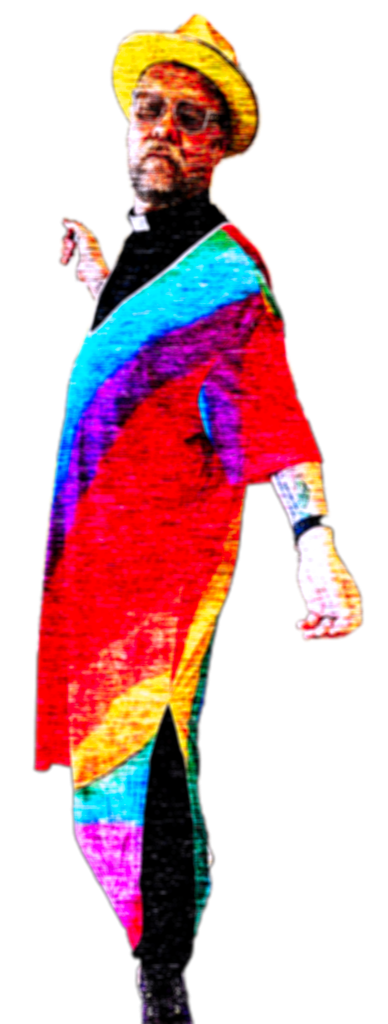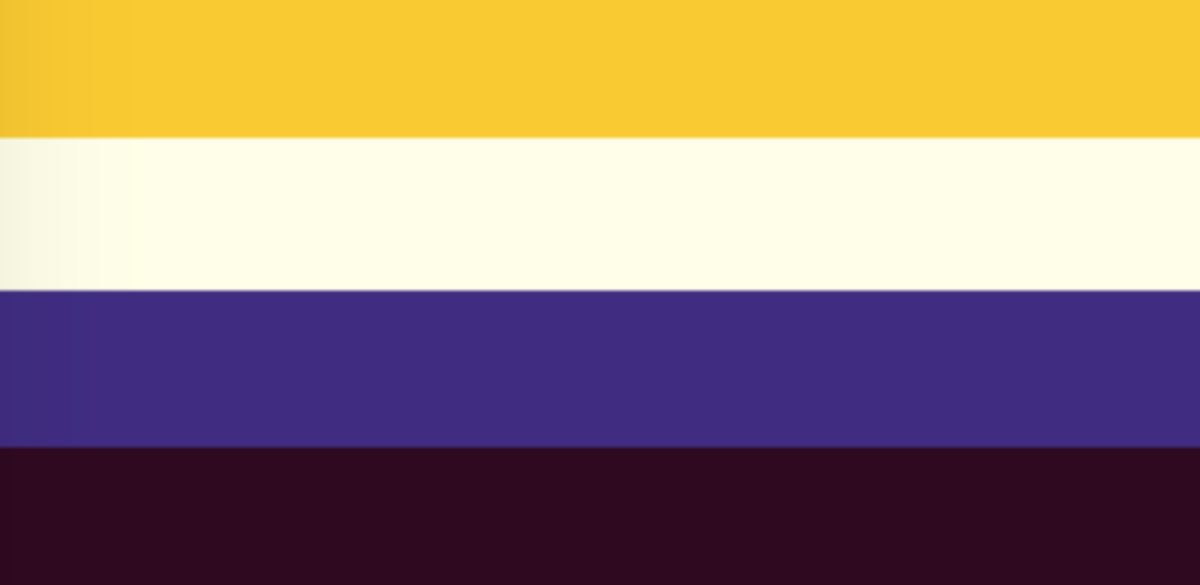When I was in elementary school, I remember many times when I felt like I wasn’t a boy. Most of my friends were girls–the simple fact was that girls did more interesting things than boys did. Any time I played pretend, I would often as not be a woman’s role as male.
That is not to say I felt like a girl. Don’t get me wrong, one time my sister dressed up me and my little brother in girl’s clothes to put on a show, and I wasn’t at all uncomfortable about it. I would try things on at other times in my Mom’s closet—wigs, panty hose. And it never felt weird. But I wasn’t especially compelled to do except on occasion. But I could play with my G.I. Joes and my sister’s Barbies together. As I got older, I would read books with female leads as readily as male ones.

They weren’t using the word “non-binary” in the 1970s, but if you knew me as a child this wouldn’t be that surprising. Other kids knew I was different and I was bullied as early as elementary school. I thought at the time it was because I was smarter than other kids (this is what my mother told me), and it wasn’t until Junior High School that I started hearing the words. “Tinkerbell” was the first one. So for survival, I began to change and cover up any bit of sissiness that I had. I still got bullied in high school from time to time, but by then it was more about discovering my attraction to men, which, strangely enough, I could deal with easier.
So, my identity became one of a young gay man, which was easy, because I had the appropriate body parts and my hormones were working overtime. And I feigned masculinity because it was masculine men that I was attracted to. I wore facial hair, and got my hair cut in the way masculine gay men were cutting theirs—and as I got older, more of the men I was attracted to were attracted to me. I never questioned my identity for a long time because it wasn’t that hard to reconcile with being a gay man…any “sissiness” I still had was subsumed into my greater identity—fitting in just fine in gay male culture.
And then I got older and we now had words for people like me. But I didn’t just wake up one day and think, “Oh, I’m non-binary,” even after knowing people who were. It happened quite by happenstance. Having a name like Cary which is given to girls about half as often as boys, which also sounds like Carrie, which is only ever given to girls, means that I’ve been misgendered all my life before people even meet me. One day, when I was around fifty years old, a letter came addressed to me that started “Dear Mrs. Bass-Deschenes.” I decided, jokingly, to change my pronouns on Facebook to they/them, so “people would never be confused again”. And then I left them like that, because, well fuck gender and gender norms, right?
Maybe a few months later, a colleague said to me, “I noticed your pronouns, are you non-binary?” and I started to explain why I did it. But I suddenly realized nobody had ever asked me that question before. And then I realized, I hadn’t asked myself that question before or even considered it. But I am non-binary, that would mean that so much of who I was inside would make that much more sense.
Ever since then, I have been affirmed by this insight over and over again. I’m still exploring what it means to me. Does it give me more freedom to express myself? Probably. Do I care today if people misgender me? Not so much. I present with the same gender assigned to me at birth. It happens.
I don’t know if there’s any particular way I’m supposed to look. I’m attracted to older men with beards. So when I look in the mirror, I find myself attractive.
And when I do hear my preferred pronouns being used, it makes me feel seen. If the opposite of gender dysphoria is gender euphoria, that’s what I get. And I have decided to give a little non-binary nod to my appearance in deciding to fill my wardrobe with purple. That is, everything except my clerical shirt…apparently those are reserved for bishops.
Looking the way I do, I have a lot of privilege in this identity, because I’m not obviously non-conforming with my assigned gender. The vast majority of my trans siblings experience are experiencing widespread discrimination, especially in today’s climate, much worse than the bullying and harassment I experienced when I was young.
So I am trying to be more open with my identity, and I have to continue to support other trans people and lift up their voices. I have to help others to bring trans rights to the forefront, and challenge disabused and archaic definitions of biological sex and gender.
It’s who I am.
